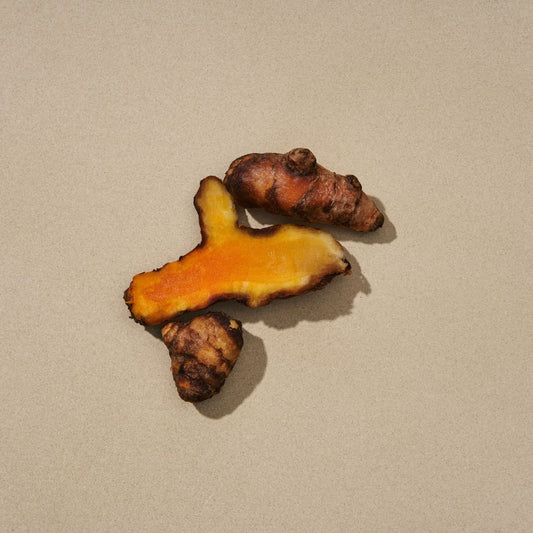Ramadan is a month-long period of spiritual reflection and self-improvement for Muslims around the world. During this time, believers engage in fasting from dawn until sunset, refraining from food and drink as a means of deepening their spiritual connection. Ayurveda, an ancient holistic healing system from India, offers valuable insights on how to make the most of this fasting period. Whether you are observing Ramadan or simply seeking to improve your overall well-being, fasting can provide numerous health benefits for your mind, body, and soul. Embracing a short-term fasting practice or integrating it into your lifestyle can lead to a healthier, more balanced existence. In this article, we will explore the advantages of fasting, as well as the wisdom of Ayurveda, an ancient holistic healing system, on this transformative practice.
Understanding the Ayurvedic Perspective on Fasting
Ayurveda believes that the human body consists of three fundamental energies or doshas: Vata (air and space), Pitta (fire and water), and Kapha (water and earth). Each person has a unique combination of these doshas, which governs their physical, mental, and emotional characteristics. If you're uncertain about your dosha type and would like to gain a better understanding of your body, consider taking a free dosha quiz on our website. Fasting is considered beneficial in Ayurveda as it helps balance the doshas, eliminate toxins, and improve overall health.The Benefits of fasting according to Ayurveda
- Detoxifies by allowing the body to rest & eliminate toxins
- Improved Digestion by giving the digestive system a break from constant processing of food.
- Promotes weight Loss by burning excess fat and calories
- Boosts Immunity by promoting the production of white blood cells
- Mental Clarity by eliminating toxins & improving brain function
- Reduces Inflammation by giving the digestive system a break
- Promotes Longevity by reducing the risk of chronic diseases such as heart disease & cancer
- Enhances Spiritual Awareness by promoting inner peace & clarity of mind.
- Improves Skin Health by promoting detoxification & reducing inflammation.
- Regulates Hormones, such as insulin & growth hormone, which can have a positive impact on overall health.
The Spiritual Significance of Ayurveda and Ramadan
The practice of Ayurveda can help enhance the spiritual dimension of Ramadan by fostering a deeper connection with oneself and one's surroundings. By focusing on the principles of balance, self-care, and mindfulness, Ayurveda encourages a holistic approach to fasting that nourishes the body, mind, and spirit. Fasting during Ramadan provides an opportunity for self-reflection and introspection, allowing individuals to assess their mental, emotional, and spiritual well-being, and consider how Ayurvedic principles can support their personal growth.
Ramadan is a time to cultivate gratitude and compassion, as the practice of fasting helps us become more empathetic to those who experience hunger and hardship daily. Ayurveda also emphasizes the importance of living in harmony with nature and all living beings, fostering a sense of interconnectedness and compassion. The practice of mindful eating can deepen the spiritual experience during Ramadan, as savouring each bite, giving thanks for the nourishment, and being fully present during suhoor and iftar can create a more profound connection with the food and the act of breaking the fast.
Alongside daily prayers, incorporating Ayurvedic meditation techniques can help center and ground individuals during the fasting period. Practices like mindfulness meditation, breathing exercises, and yoga can enhance spiritual growth and introspection during Ramadan, ultimately enriching the entire experience.
Preparing for Fasting with Ayurveda
To optimize the benefits of fasting, Ayurveda suggests a few preparatory steps:
- Adjusting your diet: In the weeks leading up to fasting, gradually shift to a lighter, easy-to-digest diet. Focus on consuming whole foods, including fruits, vegetables, grains, and legumes.
- Hydration: Proper hydration during fasting is vital for maintaining balance and supporting bodily functions. Warm or hot water is preferred over cold, as it promotes digestion and provides a sense of comfort. Ensuring adequate water intake prevents dehydration, alleviates hunger pangs, and contributes to a more manageable fasting experience. Remember to stay well-hydrated and choose warm or hot water to optimize your fasting journey.
- Gradual lifestyle changes: In the weeks leading up to fasting, start making adjustments to your daily routine. Gradually shift your waking and sleeping hours to align with the fasting period, and make time for meditation or prayer.
- Strengthening digestion: Ayurveda places great emphasis on healthy digestion. To improve your digestive fire (agni) before fasting, incorporate ginger, cumin, and fennel into your meals.
Nourishing the Body and Mind during fasting
During fasting, Ayurveda offers several recommendations to maintain balance and well-being:
- Before fasting: Eat a nutritious and balanced meal rich in fiber, healthy fats, and proteins to sustain you throughout the day. Include whole grains, nuts, seeds, and fruits to provide lasting energy.
- Breaking your fast: Breaking your fast according to Ayurveda involves a mindful and gentle approach. Begin with warm liquids and consume easily digestible, cooked foods, gradually increasing the variety and quantity. Include digestion-enhancing spices, eat mindfully, and avoid overeating. Stay hydrated with warm water or herbal teas, and listen to your body's response to different foods. This approach promotes healthy digestion and overall well-being as you transition from fasting to regular eating.
- Mindfulness and stress reduction: Fasting can be mentally and emotionally challenging. Practice mindfulness, deep breathing, and meditation to maintain mental clarity and inner peace during fasting.
Balancing Doshas during fasting
Fasting can affect your doshas differently. Here are some tips to balance each dosha during Ramadan:
- Vata: Since Vata is prone to dryness and anxiety, focus on consuming warm, moist, and grounding foods when breaking your fast. Include ghee, sesame oil, and spices like cinnamon, cardamom, and nutmeg.
- Pitta: To counteract the heat and intensity of the Pitta dosha, opt for cooling, soothing foods when breaking your fast. Incorporate sweet fruits, green leafy vegetables, and dairy products like yogurt and milk. Avoid spicy, fried, and overly salty foods.
- Kapha: Kapha-types tend to feel heavy and sluggish, so emphasize light, warm, and easily digestible meals. Choose foods like soups, steamed vegetables, and lean proteins. Limit the intake of heavy, oily, or sweet foods.
Addressing Common Fasting Challenges with Ayurvedic Remedies
During fasting, some people may experience common fasting issues such as fatigue, headaches, and indigestion. Ayurveda provides simple remedies to alleviate these symptoms. To combat fatigue, ensure proper hydration during non-fasting hours, and consume energy-boosting foods like nuts, seeds, and whole grains. Additionally, practice gentle yoga and breathing exercises to rejuvenate your body and mind. Headaches during fasting may be caused by dehydration, low blood sugar, or stress. Drink plenty of water, break your fast with dates, and practice stress-relief techniques like meditation and deep breathing. To prevent indigestion, avoid overeating when you break your fast, stick to light, easily digestible meals, and incorporate digestion-enhancing spices like ginger, fennel, and cumin. Try Deja Rest & Digest a carefully crafted blend of Ayurvedic herbs like Triphala, Ginger, Fennel, and Long Pepper, which can help maintain stomach health during fasting; take one capsule after breaking your fast.
After days or a month of fasting, it's essential to ease your body back into its regular routine. Gradually reintroduce foods over several days instead of suddenly switching back to your pre-fasting diet, giving your digestive system time to readjust. Rest and self-care are crucial after fasting, so continue practicing meditation, yoga, and other stress-reducing activities to maintain balance and well-being. Fasting can help eliminate toxins from the body; support this process by incorporating detoxifying herbs like turmeric, ginger, and triphala into your post-fasting routine.
In summary, Ramadan, Ayurveda, and fasting create a powerful synergy for personal transformation and spiritual growth. By integrating Ayurvedic principles into your fasting routine, you can maintain balance, nourish your body, and deepen your spiritual connection during this sacred time. Embrace the harmony of these ancient practices to nourish your body, mind, and soul during this transformative time, and to guide you towards greater self-awareness.





